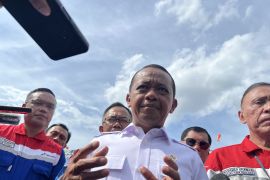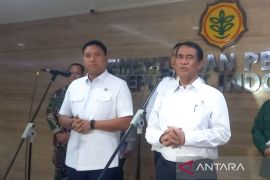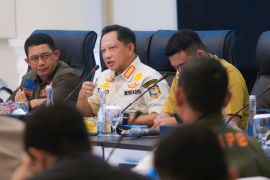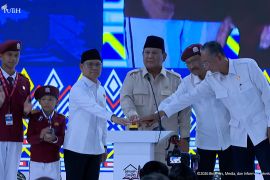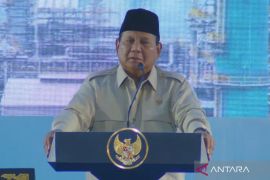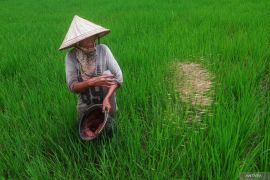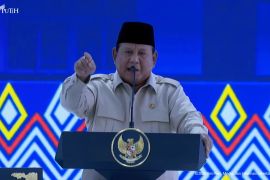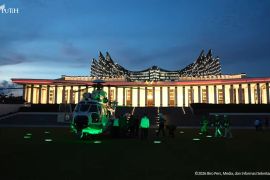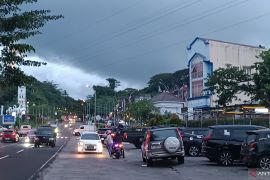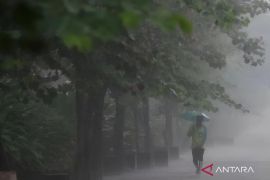Sharif explained, the seaweed downstream policy undertaken by MMFA is to accommodate the increasingly seaweed production. In addition, this program is meant to enhance the value added through the processing sector, so that the seaweed won't be exported in a form of unprocessed dry seaweed. The seaweed program has a high comparative advantage. Especially, since Indonesia has an abundant and derivative seaweed resource. The seaweed industrialization is not limited to increase the national income, but also to open many employment opportunities. The seaweed industrialization also has a strategic role, where this sector is related to the other sectors, both the back-end and the front-end business. "As a raw material, seaweed can be processed into 500 end products. The demand of this commodity is very high for the industry, either food or non-food industry." he stated.
Sharif continued, the fishery industrialization program has positioned seaweed as a strategic commodity. To support the program, MMFA, in 2013, has set up the seaweed production to 7,5 million tones or increased by 30% compared to last year's 5,2 million tones. While in 2013, MMFA aims to produce the seaweed by 10 million tones. To realize it, the downstream development is one of the strategies to increase its value. "MMFA has targeted the 2013's domestic processed seaweed production by 205.000 tones. The production includes ATC (Alkali Treated Carrageenan), SRC (Semi Refine Carrageenan), RC (Refine Carrageena), jelly, Aginat, or other processed products," explained him.
In Line with Blue Economy
Delivered in the Symposium, Indonesia has a vast potency of seaweed with the total area of 1.110.900 ha. The germplasm of the Indonesian seaweed spans over 555 varieties or 45% of the entire world's seaweed varieties, such as Glacilaria, Gelidium, Eucheuma, Hypnea, Sargassum and Turbinaria. The advantage of the seaweed cultivation is that it can be harvested in about 45 days. In Indonesia, seaweed can even be cultivated all season. With such a potential sector and also supporting climate, the role of the scientists and researchers become tangibly crucial to the development of the seaweed business. "They have a direct role, ranging from the seeding, cultivation, post-harvest management, seaweed processing, to the formulation industry, and the derivate end product," Sharif said.
Seaweed, as one of the main marine and fishery industrialization commodity, is in line with the Blue Economy model, where the seaweed investment and business are quite advantageous, both to the environment and the community. The seaweed business , both the cultivation or the processing, has met the requirements of the Blue Economy. The business has a high revenue and an extensive open business development as it's raw material and energy efficient as well as it has a derivative line product. In addition to being quite promising and advantageous, the seaweed business is a zero waste industry. "Essentially, the seaweed business will enhance the revenue of the local community and it's environmentally friendly industry, making it one of the most efficient industries today," unveiled Sharif.
Meanwhile, the Director General of the Fisheries Product Processing and Marketing, Saut P. Hutagalung, added, the 21st International Seaweed Symposium (ISS) which will be held on April 22-26, with the theme "Seaweed Science for Sustainable Prosperity", is expected to open ways to develop the science in the seaweed business, so that it can give sustainable prosperity to the world's community. The Symposium held for the first time in Indonesia has a strategic role for the seaweed production which increases rapidly over the past years. The Symposium aims to gather all the seaweed-related experts, practitioners, and the industry's key players to discuss current issues and share information and insights. Mr. Hutagalung highlighted the success of the technology development: "The Symposium also serves to bridge the producers, buyers, and investors, both domestic and foreign. The event is also to promote many kinds of seaweed processed products and technologies as well as to popularize the habit of seaweed consumption.
Mr. Hutagalung continued, the ISS will be attended by 513 participants from 50 countries. Beside the main event "the Symposium", the event includes Field Trip, The Exhibition, The seaweed consumption campaign, Business meeting, and World Carrageenan Meeting. It will also feature a number of renowned scientists, academics, business owners and players, and government officials. "This international-grade event will be a strategic arena as well as to being a milestone for Indonesia in leading the world's seaweed industry in order to enhance the productivity, eficiency, and value of the seaweed products through the integration of the upstream and the downstream establishment."
For more information, please contact Indra Sakti, SE, MM, The Head of Statistic and Information Center, The Ministry of Maritime and Fisheries Affairs. (Ph. 0818159705)
Editor: PR Wire
Copyright © ANTARA 2013
